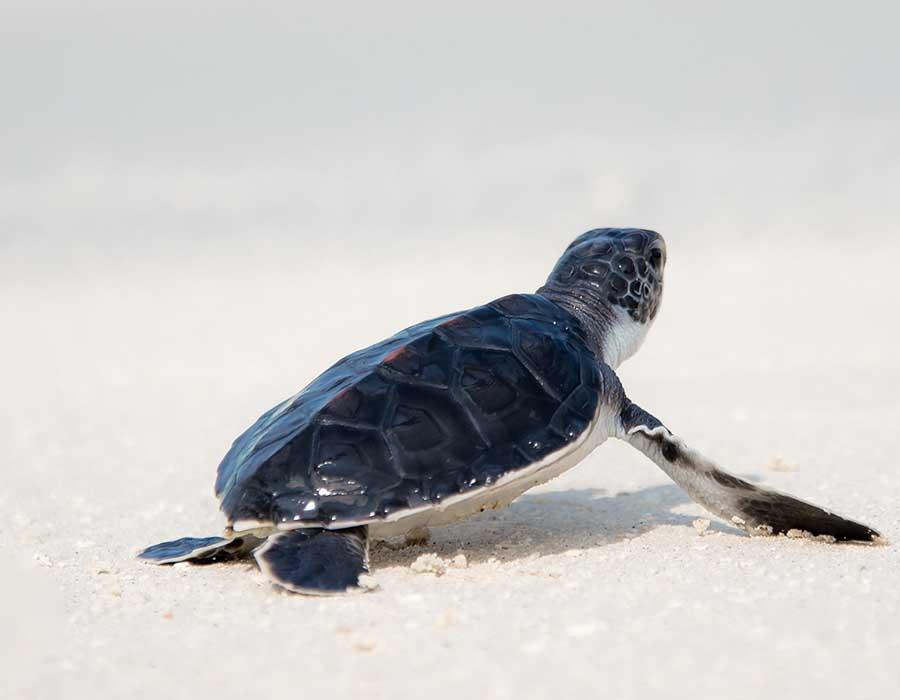Global Warnings: The future for sea turtles in a hotter world

As a young wannabe zoologist my first experience of overseas fieldwork was volunteering with the North Cyprus Society for the Protection of Turtles. With a group of like-minded students, I spent a formative summer patrolling sandy beaches for sea turtle nests which, when found, we covered with wire mesh to protect them from predators.

This was followed by night-time observations of turtle nesting and turtle PIT tagging - it was hard but rewarding work. Thanks to the society’s efforts, sea turtle nest counts in North Cyprus have increased significantly over the last two decades.

Globally, the situation for sea turtles is not so rosy. Several years later I worked with turtles again while living in Malaysia. With local NGO, the Turtle Conservation Society of Malaysia, we piloted a method to detect the critically endangered Southern River Terrapin (Batagur affinis) using environmental DNA. Terengganu on the east coast of Peninsular Malaysia is one of the few places in the world where freshwater and marine turtles (including species I knew from Cyprus) nest on the same beaches. Sadly, turtle populations have declined dramatically in Terengganu largely due to poaching of eggs.

Around the world sea turtles are facing yet another existential threat – global heating. Hotter sand means fewer turtles hatch successfully, and those that do are more likely to be female, wildly skewing natural sex ratios. Hotter sea temperatures alter ocean currents changing the distribution and abundance of the turtles’ food sources. Nesting beaches are being eroded and destroyed by sea level rise and extreme weather events.

Loggerhead Sea Turtles (Caretta caretta) have 5 costal scutes while Green Sea Turtles (Chelonia mydas) and Hawksbill Sea Turtles (Eretmochelys imbricata) have 4 coastal scutes but distinctive heads. Other species of sea turtles are Leatherback Sea Turtle (Dermochelys coriacea), Flatback Sea Turtle (Natator depressus), Kemp's Ridley Sea Turtle (Lepidochelys kempii) and Olive Ridley Sea Turtle (Lepidochelys olivacea).
Sea turtles are one small group among hundreds of thousands of species being adversely impacted by the climate crisis. See below our stories highlighting the effect of Climate Change in line with the UN Climate Change Conference, Cop27.
